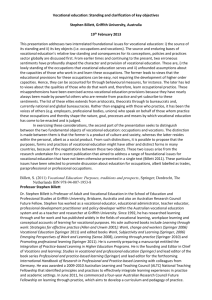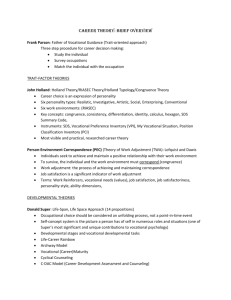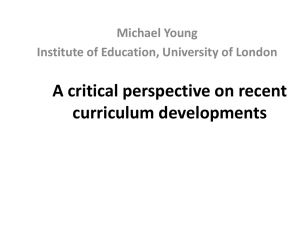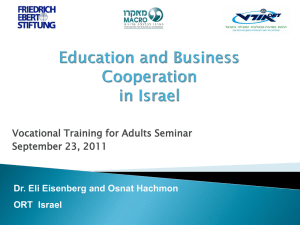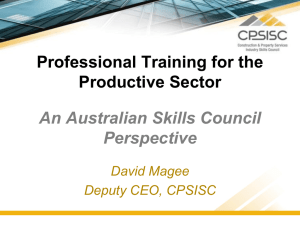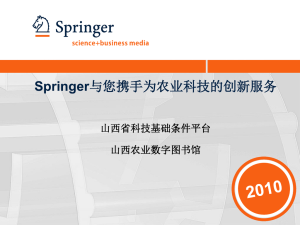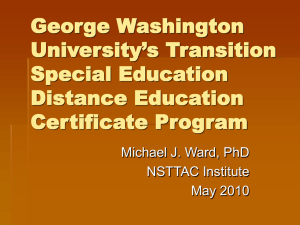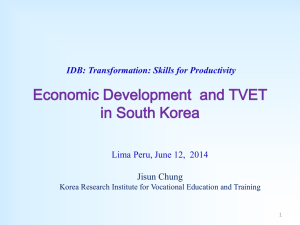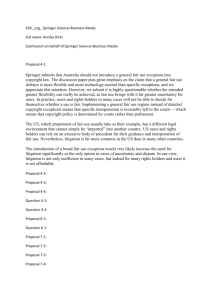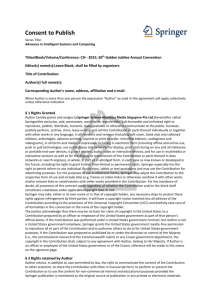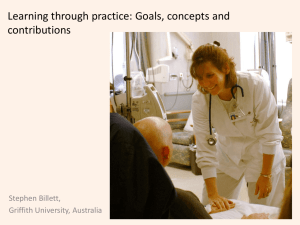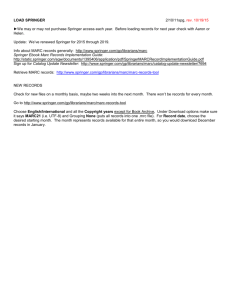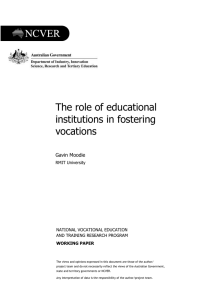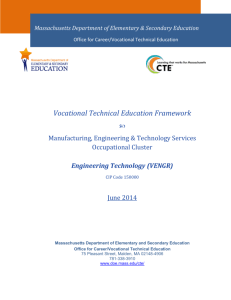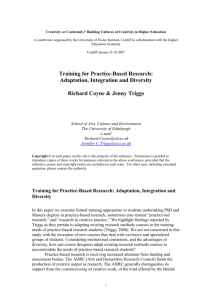Billett_Oslo_Learning through practice_Feb18_13
advertisement
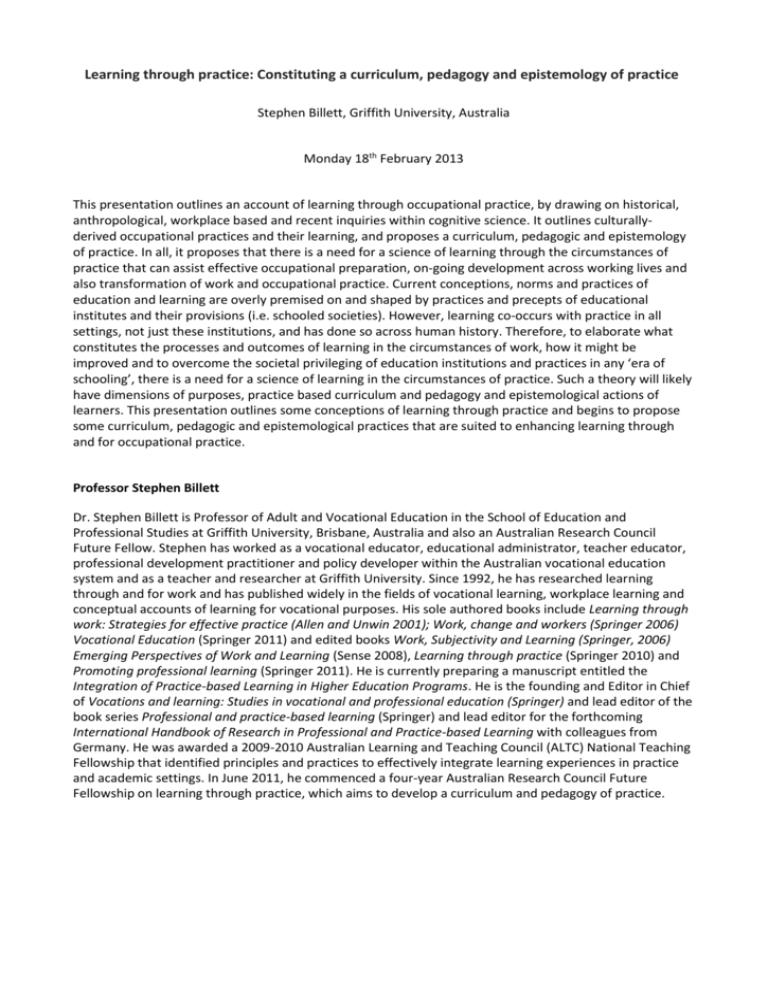
Learning through practice: Constituting a curriculum, pedagogy and epistemology of practice Stephen Billett, Griffith University, Australia Monday 18th February 2013 This presentation outlines an account of learning through occupational practice, by drawing on historical, anthropological, workplace based and recent inquiries within cognitive science. It outlines culturallyderived occupational practices and their learning, and proposes a curriculum, pedagogic and epistemology of practice. In all, it proposes that there is a need for a science of learning through the circumstances of practice that can assist effective occupational preparation, on-going development across working lives and also transformation of work and occupational practice. Current conceptions, norms and practices of education and learning are overly premised on and shaped by practices and precepts of educational institutes and their provisions (i.e. schooled societies). However, learning co-occurs with practice in all settings, not just these institutions, and has done so across human history. Therefore, to elaborate what constitutes the processes and outcomes of learning in the circumstances of work, how it might be improved and to overcome the societal privileging of education institutions and practices in any ‘era of schooling’, there is a need for a science of learning in the circumstances of practice. Such a theory will likely have dimensions of purposes, practice based curriculum and pedagogy and epistemological actions of learners. This presentation outlines some conceptions of learning through practice and begins to propose some curriculum, pedagogic and epistemological practices that are suited to enhancing learning through and for occupational practice. Professor Stephen Billett Dr. Stephen Billett is Professor of Adult and Vocational Education in the School of Education and Professional Studies at Griffith University, Brisbane, Australia and also an Australian Research Council Future Fellow. Stephen has worked as a vocational educator, educational administrator, teacher educator, professional development practitioner and policy developer within the Australian vocational education system and as a teacher and researcher at Griffith University. Since 1992, he has researched learning through and for work and has published widely in the fields of vocational learning, workplace learning and conceptual accounts of learning for vocational purposes. His sole authored books include Learning through work: Strategies for effective practice (Allen and Unwin 2001); Work, change and workers (Springer 2006) Vocational Education (Springer 2011) and edited books Work, Subjectivity and Learning (Springer, 2006) Emerging Perspectives of Work and Learning (Sense 2008), Learning through practice (Springer 2010) and Promoting professional learning (Springer 2011). He is currently preparing a manuscript entitled the Integration of Practice-based Learning in Higher Education Programs. He is the founding and Editor in Chief of Vocations and learning: Studies in vocational and professional education (Springer) and lead editor of the book series Professional and practice-based learning (Springer) and lead editor for the forthcoming International Handbook of Research in Professional and Practice-based Learning with colleagues from Germany. He was awarded a 2009-2010 Australian Learning and Teaching Council (ALTC) National Teaching Fellowship that identified principles and practices to effectively integrate learning experiences in practice and academic settings. In June 2011, he commenced a four-year Australian Research Council Future Fellowship on learning through practice, which aims to develop a curriculum and pedagogy of practice.
